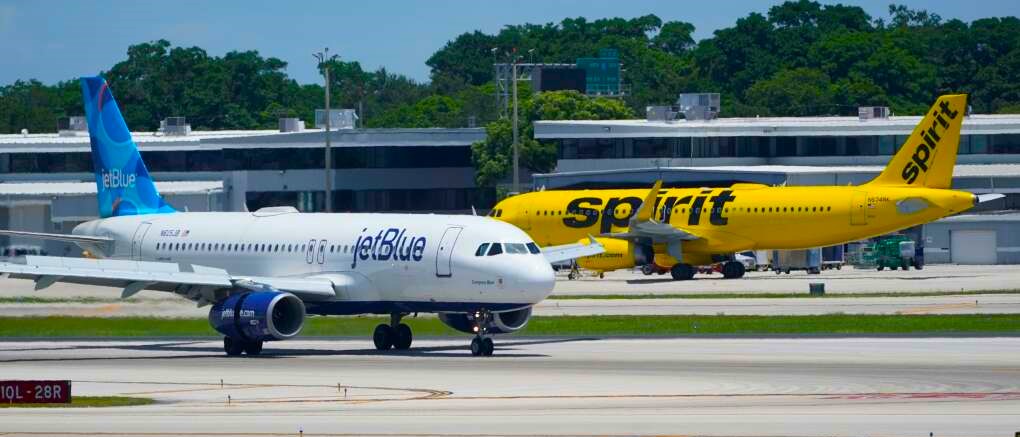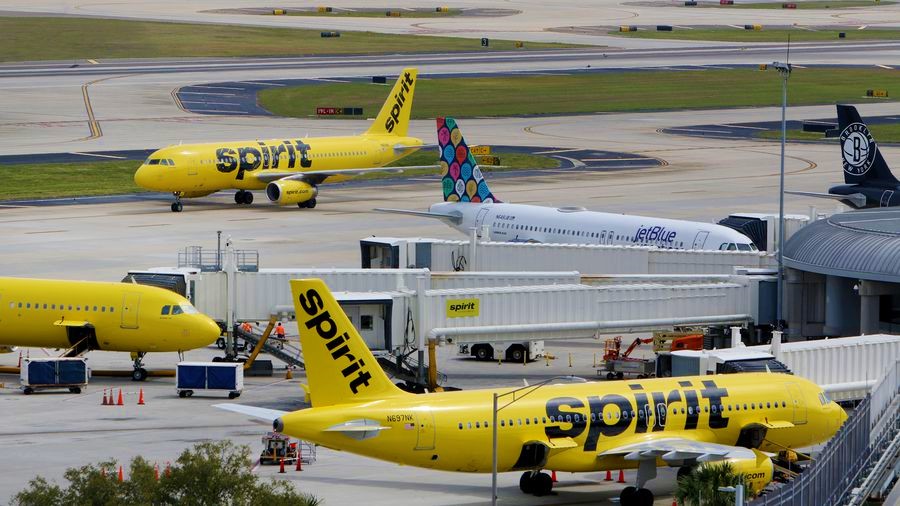


JetBlue’s proposed $3.8 billion purchase of Spirit Airlines would have created the country’s fifth-largest airline, a deal the carriers had said would help them better grow and compete against bigger rivals like Delta and United , but a federal judge blocked JetBlue Airways from buying Spirit Airlines, citing the deal would reduce competition.
The Justice Department sued to block the merger, saying it would drive up fares by eliminating Spirit, the nation’s biggest low-cost airline.
“JetBlue plans to convert Spirit’s planes to the JetBlue layout and charge JetBlue’s higher average fares to its customers,” U.S. District Court Judge William Young wrote in his decision. “The elimination of Spirit would harm cost-conscious travelers who rely on Spirit’s low fares.”
JetBlue said it disagreed with the ruling and was considering whether to appeal, the carrier reasoned that the deal is must to compete better against bigger rivals that dominate the U.S. air-travel market.
“We continue to believe that our combination is the best opportunity to increase much needed competition and choice by bringing low fares and great service to more customers in more markets," JetBlue said in a statement.

In this airline merger case, the Justice Department said if JetBlue were allowed to buy Spirit, it would especially hurt travelers who depend on Spirit’s low fares. The decision, handed down Tuesday, marks a victory for a Justice Department that has aggressively sought to block deals it views as anti-competitive.
“Today’s ruling is a victory for tens of millions of travelers who would have faced higher fares and fewer choices had the proposed merger between JetBlue and Spirit been allowed to move forward,” Attorney General Merrick Garland said in a statement. “The Justice Department will continue to vigorously enforce the nation’s antitrust laws to protect American consumers.”
U.S. District Judge William Young, said in the ruling Tuesday that the government had proven that the merger “would substantially lessen competition” and violated a century-old antitrust law.
“Spirit is a small airline. But there are those who love it. To those dedicated customers of Spirit, this one’s for you,” Young wrote.
Shares of Spirit Airlines Inc. plunged after the ruling and ended the day down 47%, while JetBlue’s stock gained about 5%.
For JetBlue, the ruling happened to be the second major setback in federal court in less than a year. Boston courthouse had earlier snapped the partnership between JetBlue and American Airlines.
The DOJ alleged in its lawsuit, that JetBlue’s acquisition of the budget airline would force many passengers to pay higher fares by eliminating Spirit and “about half of all ultra-low-cost airline seats in the industry.”
JetBlue, the nation’s sixth-largest airline by revenue, must reinforce its growth plan. Incoming CEO Joanna Geraghty's first assignment won't be easy as she replaces Robin Hayes, who was behind both of the deals that have now been blocked in court.
JetBlue and Spirit said in a joint statement,
“We continue to believe that our combination is the best opportunity to increase much needed competition and choice by bringing low fares and great service to more customers in more markets while enhancing our ability to compete with the dominant U.S. carriers,”
“We are reviewing the court’s decision and are evaluating our next steps as part of the legal process.”
The now-blocked JetBlue deal for Spirit came after JetBlue outbid a proposed merger between Spirit and another discount airline, Frontier Airlines. Spirit management had initially supported the Frontier deal, raising the possibility that regulators would block a deal with JetBlue.
But once Spirit shareholders rejected the less lucrative Frontier deal, Spirit management changed course and accepted the deal with JetBlue.
The ruling now could bring a second chance for Frontier Airlines, that lost the bid to an all-cash offer from Jetblue last year, to make another attempt to buy Spirit.
Related News.....
